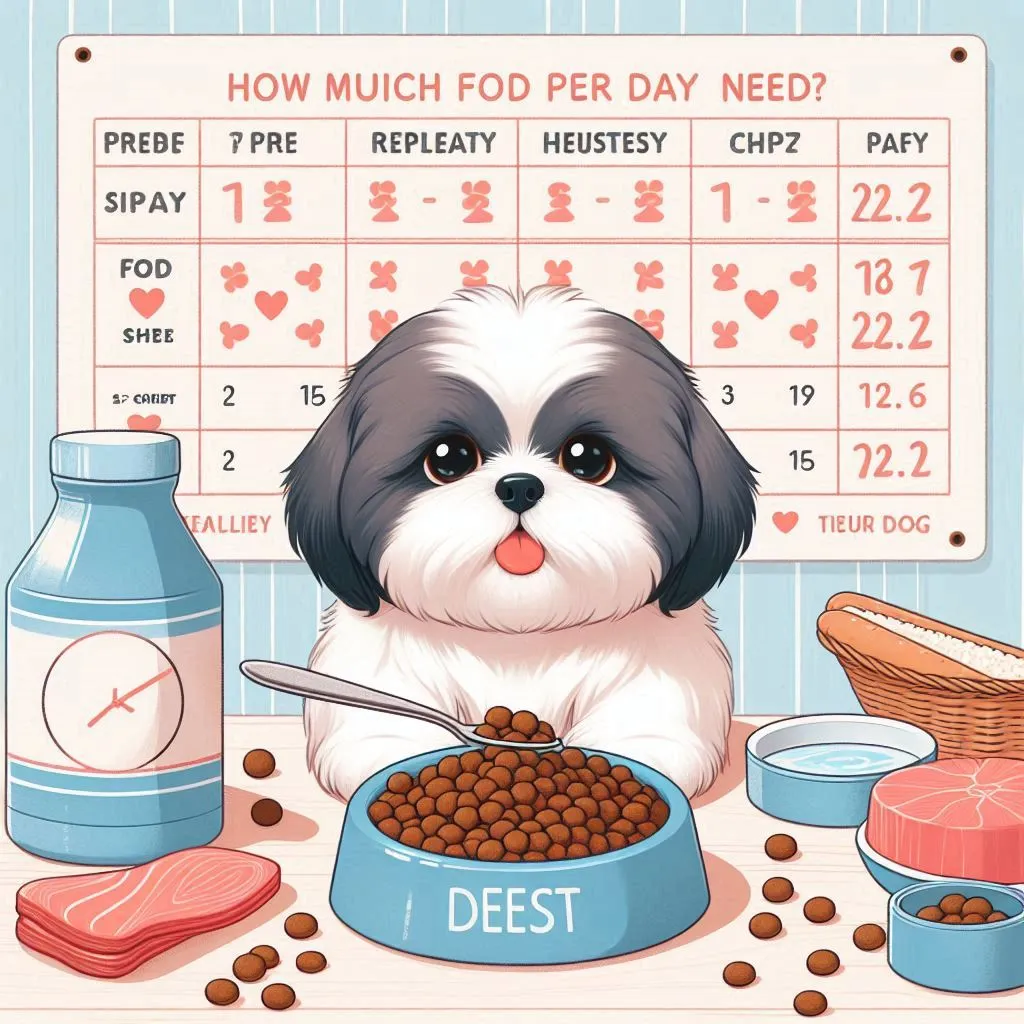Can Dogs Eat Peaches?The Ultimate Guide for Dog Owners
Can Dogs Eat Peaches?
When it comes to the question, can dogs eat peaches? The answer is yes; most dogs can eat peaches, as they are generally safe for dogs. However, there are a few conditions and precautions you must take into account before you give your dog a fresh peach. Always opt for organic peaches as they are free from pesticides and herbicides that can be toxic to dogs. It’s recommended to wash and cut the peach into bite-size pieces before feeding them to your dog. Peach slices are easier for your pet to consume. Avoid giving your dog the pit part of the peach, as it can be harmful.
Always remember that fresh, organic peaches are a good source of vitamins A and C and dietary fiber. Therefore, serving peaches, notably white peaches, can be a nutritious addition to your dog food. But, it’s crucial to note that dogs don’t need as many fruits as humans do because canines meet most of their nutritional needs by eating balanced dog food.
Despite peaches being generally safe, preserved peaches can be dangerous for dogs due to their high sugar content and the presence of artificial sweeteners, which can be toxic. While fresh peaches are a delicious treat for dogs, limiting the serving size is crucial. Too many peaches, regardless of their form or type, can cause gastrointestinal upset. Always monitor how your dog might react after being given peaches.
Remember, peaches are a great occasional treat but shouldn’t replace a balanced diet. Therefore, don’t use peaches as the primary dog food; consider them a treat and infrequent supplement only. Even though peaches are a great source of many nutrients, always use moderation when feeding dogs this type of fruit to keep your dog safe and healthy.
Why Would Dogs Eat Peaches?
While it might seem unusual, there are several reasons why you might choose to feed peaches to your dog. Peaches are rich in vitamins and fiber, benefiting your pet’s health. However, it’s important to note that peaches can cause gastrointestinal distress if given in large quantities due to their high sugar content. Hence, offering peaches in moderation is wise to prevent overfeeding and potential hazards.
Peaches are also a potential choking hazard due to the pits or stones they contain. The pits found in peaches and nectarines are difficult to digest and can lead to obstruction. Thus, it’s critical to avoid offering peaches with pits to dogs. The pit of a peach contains small amounts of cyanide, which is harmful to dogs.
You can feed your pup peaches that are fresh and pit-free. Both yellow peaches and other types of peaches are perfectly safe for your dog when prepared properly, but it’s still important to watch for any adverse reaction to peaches. Even though peaches are safe when given to dogs without the pit and in controlled quantity, not all dogs may react the same way to this fruit.
So, next time you’re snacking on a peach, don’t hesitate to offer peaches to your dog, but remember to monitor the amount of peaches you’re giving. Peaches healthy vitamins and minerals can help improve their nutrition but should not replace what dogs need from their regular diet. Therefore, ensure peaches to dogs are given in moderation and are pit-free.

Benefits of Peaches for Dogs:
While many may ask, “Are peaches bad for dogs?” if managed properly, peaches can benefit our canine friends. In moderation, it is safe for healthy dogs to consume peaches. Rich in vitamins A and C, peaches are high in beneficial nutrients and can help boost your pet’s immune system. However, never give your dog a whole peach, as the pit can be dangerous to dogs.
The pit aside, peaches also contain natural sugar, which, if consumed in large quantities, can lead to weight gain – remember, peaches are higher in calories. So, give your dog sliced peaches in small portions. For dogs with certain health conditions, peaches may be bad, so it’s best to consult a vet.
Choose fresh peaches over canned or preserved peaches, as canned versions are usually high in sugar, making them less good for your dog. Also, canned peaches may contain a preservative called xylitol, which is dangerous to dogs. So, stick to fresh peaches. Sliced peaches can also be a tasty treat, but remember, it’s best to introduce peaches slowly into their diet.
By taking these precautions, peaches can lead to numerous benefits, including better digestion and healthier skin, and could be valuable in keeping your dog healthy. As with any food, moderation and proper preparation are key when feeding peaches to dogs.
Is Peach Good for Dogs?
Peaches usually form a part of many canine diets due to their numerous health benefits. Peaches offer many advantages for dogs, such as being an excellent source of fiber and vitamins A and C. However, peaches have a high sugar content, so they should be given to dogs sparingly to avoid upsetting their digestive system.
How Many Peaches Can I Give My Dog?
As a pet owner, knowing what your dog can eat is essential. Peaches can indeed be shared with your canine friend, but in moderation. Generally, giving only a slice or two per day to a medium-sized dog is advised. Too many peaches can lead to digestive issues. Always make sure to remove the pit before feeding, as it can cause a choking hazard and contains harmful substances like cyanide.
Is it Safe for Dogs to Eat Peaches?

Generally, peaches are safe for dogs to eat in moderation. They are an excellent source of fiber, vitamin A, and vitamin C. However, you must remove the pit or stone before offering your pet a peach. This is because peach pits contain cyanide, which is toxic to dogs and can also cause choking or damage to the gastrointestinal tract due to their sharp edges and tough exterior. Always give peaches in controlled amounts to prevent upset stomach or diarrhea.
Are Peaches Safe for Dogs?
Dogs can safely consume peaches but in a controlled manner. They are rich in fiber and vitamins, which benefit your pet’s health. However, the pit or seed of the peach is harmful as it contains cyanide, which is poisonous for dogs and can also pose a choking hazard or cause intestinal obstruction if swallowed.
Thus, it would help if you only fed dogs peeled peaches, ensuring all traces of the pit and stem have been removed. Extreme caution is always recommended while feeding peaches to your dog.
Can Dogs Eat Canned Peaches?
Dogs can technically consume canned peaches, but there are better choices. Canned peaches often come packed with high sugars and preservatives, which aren’t good for your furry friend. Even though these fruits are an excellent source of Vitamin A and fiber, the artificial chemicals can be unhealthy for dogs. It’s better to opt for fresh peaches, but remember to remove the pit since it’s harmful if ingested.
Can Dogs Eat Frozen Peaches?
Feeding your dog with frozen peaches can be refreshing, especially during hot summer days. However, it is crucial to remember that the peaches should be pitted. The peach pits can cause choking hazards or intestinal blockages. Additionally, they contain a small amount of cyanide, which can harm your pet. So, dogs can enjoy frozen peaches if served in moderation, pitted, and given as an occasional treat.
How to Feed Your Dog Peaches Safely?
Dogs can enjoy the juicy sweetness of peaches as a treat, but there are safety guidelines you should follow. Begin by ensuring the peaches are ripe and fresh. Next, remove the pit as it contains small amounts of cyanide and can also cause choking. Peach pits can be extremely harmful if ingested. Slice the peach into small, bite-sized pieces to make it easier for your dog to eat and digest. Additionally, always keep an eye on your dog while they are eating ANY treat for the first time. Never feed them canned peaches, as they typically contain high amounts of sweeteners and preservatives that can harm dogs.
Prepping the Peach for Your Dog:
When prepping a peach for your dog, safety is the main concern. First, thoroughly wash the peach to remove any pesticides. Then, slice the fruit away from the hard pit in the middle, as it can be a choking hazard and contains trace amounts of cyanide, which is harmful to dogs.
Small dog breeds might struggle with large chunks, so cut the peach into manageable pieces. Remember, moderation is key, as too many peaches can lead to upset stomachs and diarrhea in dogs.
Introducing New Food to Your Dog:
When introducing new food to your dog, it’s essential to do so gradually to avoid digestive upset. Mix a small amount of the fresh food with the old variety. Over the next week, slowly increase the proportion of the new food while decreasing the old. Always observe your dog’s behavior and stool consistency throughout this transition. Consult your veterinarian immediately if any abnormalities occur, such as vomiting or diarrhea.
How to Feed Your Dog Peaches?
Feeding your dog peaches can be a healthy treat, but it needs to be done carefully. Start by washing the peach thoroughly to remove any pesticides.
Next, remove the peach pit, as it can be a choking hazard and contain traces of cyanide that harm dogs. After that,
cut the peach into small, bite-sized chunks that your dog can easily chew and digest. Lastly, only feed your dog peaches in moderation. Too much can cause stomach upset due to the high sugar content.

Is there a Risk of Dogs Eating Peaches? The Peach Pit Hazard:
While the flesh of a peach can be a tasty treat for dogs, ingesting a peach pit can pose a serious risk. Peach pits not only contain small amounts of cyanide, which is toxic to dogs, but can also obstruct the digestive system.
Additionally, a sharp-edged pit can damage the interior lining of a dog’s digestive tract.
Thus, owners should always remove this part before offering peaches to their canine companions.
Are Peach Pits Bad for Dogs?
Peach pits can be quite harmful to dogs as they contain amygdalin. When ingested, a dog’s body converts amygdalin into hydrogen cyanide, a potentially lethal poison.
Also, their hard and sharp nature can cause physical damage. A swallowed peach pit could cause a blockage in the digestive tract or lead to a choking hazard.
Owners should, therefore, keep peaches and other fruit with similar pits out of their pets’ reach to prevent accidental ingestion.
Can Dogs Eat Peach Pits?
It is not recommended to let dogs eat peach pits. Pits from peaches contain amygdalin, which breaks down into hydrogen cyanide when ingested. This is toxic for dogs and can lead to health problems. Also, the hard pit can be a choking hazard or cause blockages in your pet’s digestive tract. Removing the peach pit before feeding your dog the fruit is always important to avoid any potential harm.
Choking Hazards and Peach Pits:
Choking hazards are a serious concern when it comes to food consumption, especially for children. Small objects can accidentally slip into the windpipe, inhibiting airflow and potentially leading to fatal results.
Among these threats are peach pits. Although not typically swallowed, the pits are still large enough to block the airway if ingested possibly. In addition to their size and hardness, their smooth exterior might contribute to their potential as choking hazards.
There’s a strong need for careful supervision and preparation when consuming peaches, especially for young ones.
Are there any Alternatives to Peaches for Dogs?
Dogs can safely consume a variety of fruits other than peaches. These alternatives include apples (seeds removed), bananas, blueberries, and oranges (in small quantities due to their high sugar content). However, not all fruits are safe for dogs. For instance, you should never feed dogs with grapes, cherries, or avocados as they contain toxins harmful to canines. Always consult your vet before introducing new foods to your pet’s diet.
Can I Feed Other Fruits to My Dog?
Feeding fruits to your dog can be a healthy treat if done in moderation. Fruits such as apples, bananas, and blueberries are safe options, packed with vital nutrients beneficial for your pet’s health. However, not all fruits are dog-friendly; grapes and avocados, for instance, are highly toxic to dogs and should never be included in their diet. It is vital to consult with a veterinarian before introducing new foods to your dog’s diet.
Organic Versus Regular Peaches:
Organic and regular peaches have several distinctions that impact their taste, nutrition, and environmental impact. Organic peaches are grown without synthetic pesticides or fertilizers and are often smaller and more flavorful than their counterparts. Regular peaches, on the other hand, are conventionally grown with the aid of chemicals. They can be larger but not necessarily tastier and may have pesticide residues. Organic farming is also better for the environment, making organic peaches more eco-friendly.
Fruit Alternatives to Peaches for Dogs:
Providing your dog with a healthy diet that includes fruits can be beneficial, but not all fruits are suitable. Some excellent fruit alternatives to peaches include bananas, blueberries, and apples (make sure to remove the seeds).
These fruits are safe for dogs and packed with essential vitamins and antioxidants. Bananas are a good source of potassium and fiber, while blueberries are rich in antioxidants.
Apples offer a good amount of vitamins A and C. However, always remember to provide these fruits in moderation, as an excess can cause digestive problems.
FAQ’s:
Can dogs have peaches with skin?
Dogs can enjoy peaches, including the skin, as they are not harmful in small amounts. However, it’s important to ensure the peach is clean and pesticide-free. The pit, though, should be removed as it poses a choking hazard and may contain traces of cyanide.
Can dogs eat peaches or apricots?
While peaches and apricots can be a sweet treat for humans, they may not be suitable for dogs. The flesh of these fruits is safe for dogs to consume in moderate amounts, but their pits contain cyanide, which is toxic to dogs. Also, too much sweet fruit can lead to gastrointestinal upset or pancreatitis in dogs.
How much peach can a dog eat?
While peaches are not toxic for dogs, they should only consume them in moderation. Certain parts of a peach, like the pit, contain cyanide, which can be harmful if consumed in large amounts. As a rule of thumb, a dog can eat one or two slices, ensuring the pit is removed.
Is my dog allergic to peaches?
Just like humans, dogs can have allergies, too. It is possible that your dog could be allergic to peaches. Symptoms of a food allergy in dogs can include gastrointestinal issues, such as vomiting and diarrhea, or skin problems, like itching and rashes. Always consult a vet if you notice any abnormal behavior.
Can dogs eat peach seeds?
No, dogs should not consume peach seeds. These seeds, also known as pits, contain amygdalin, which gets converted into cyanide when ingested. This can lead to cyanide poisoning in dogs. Symptoms include dilated pupils, panting, and shock.















Post Comment